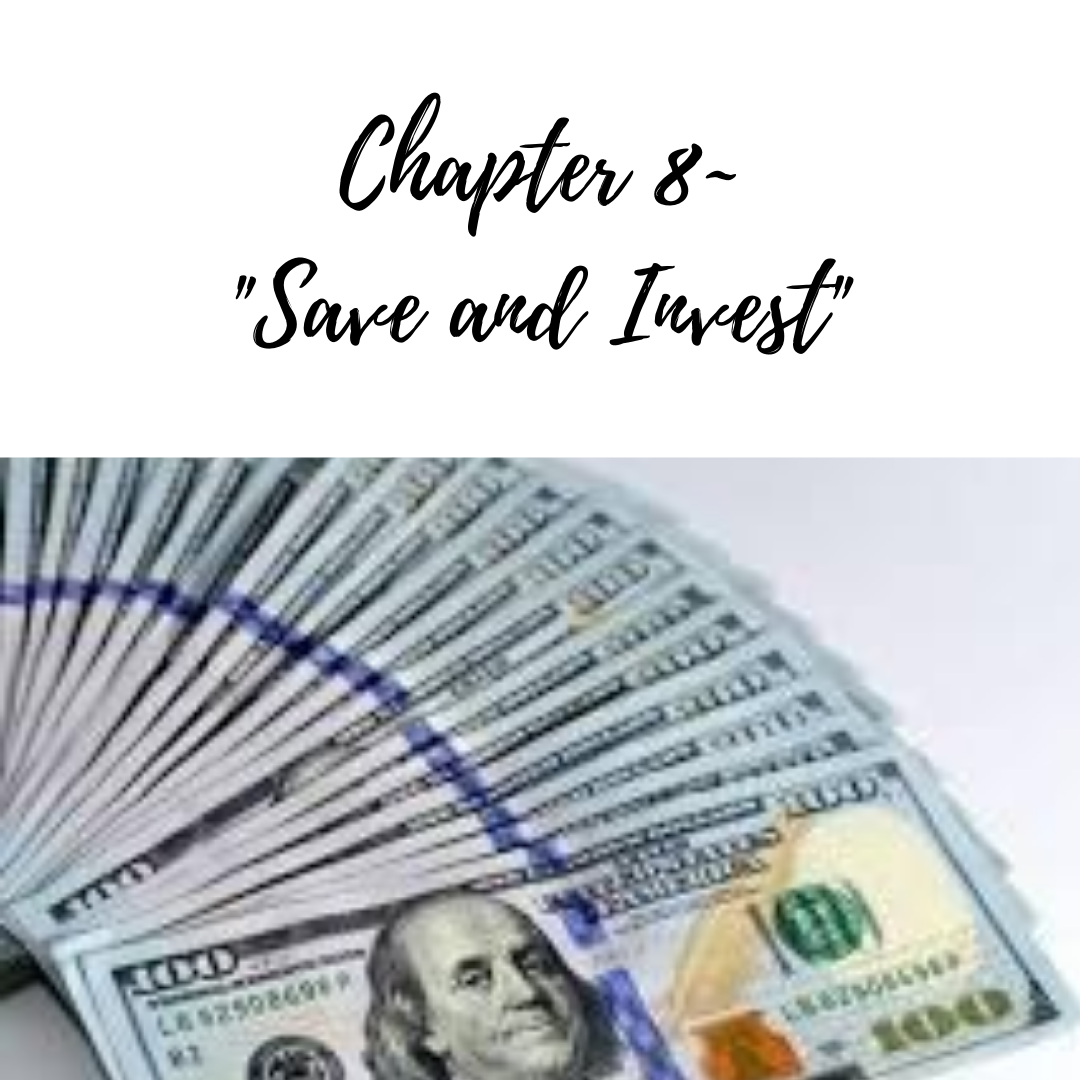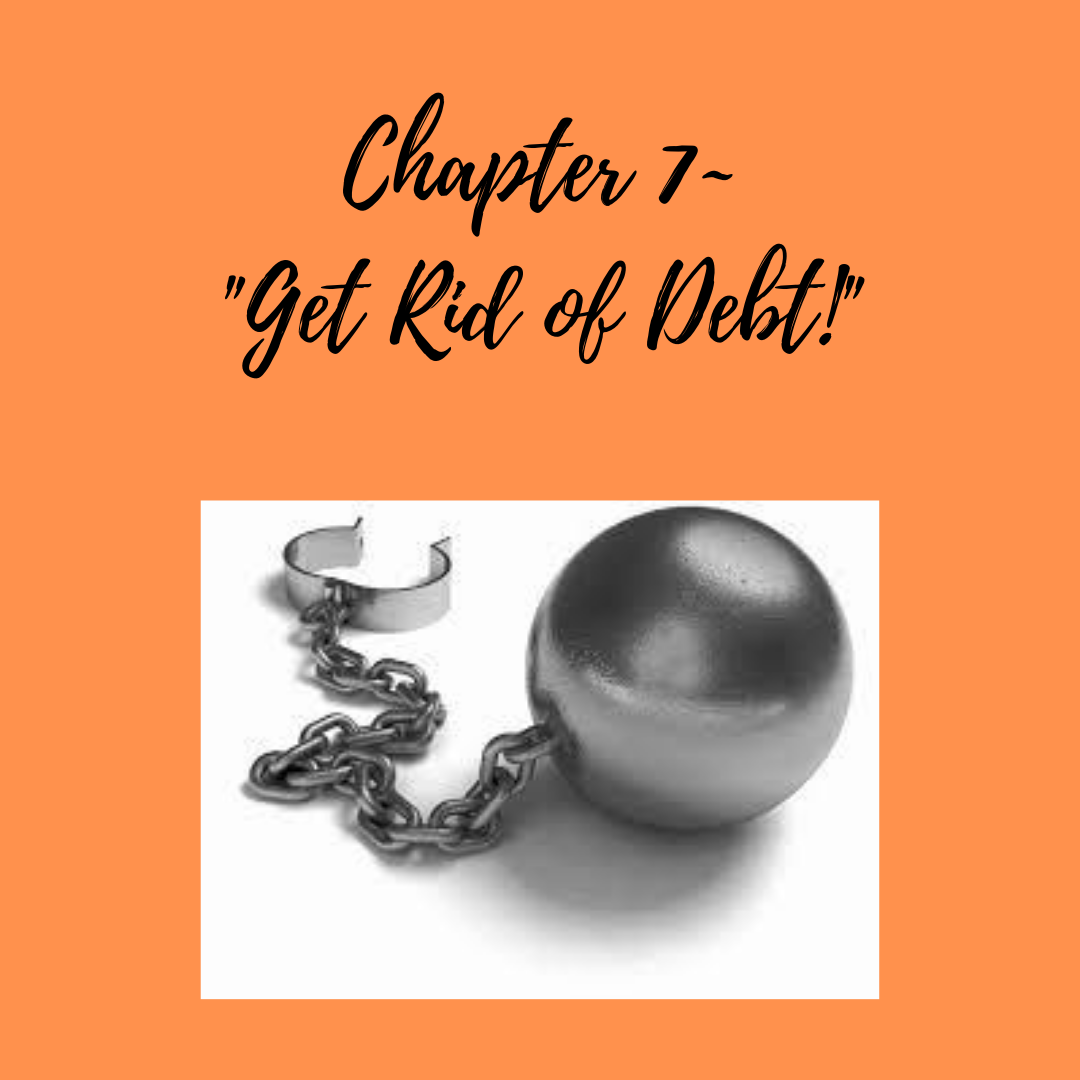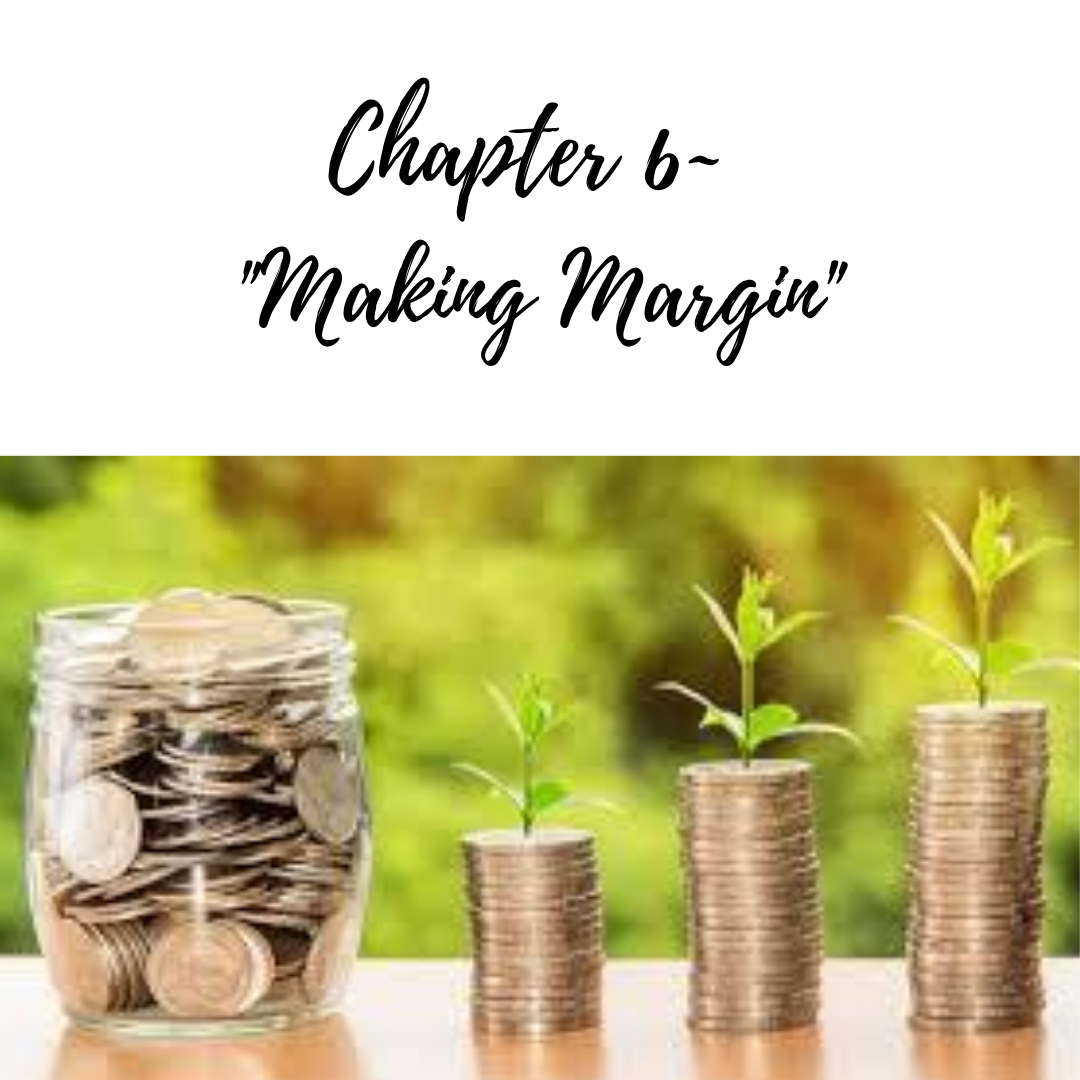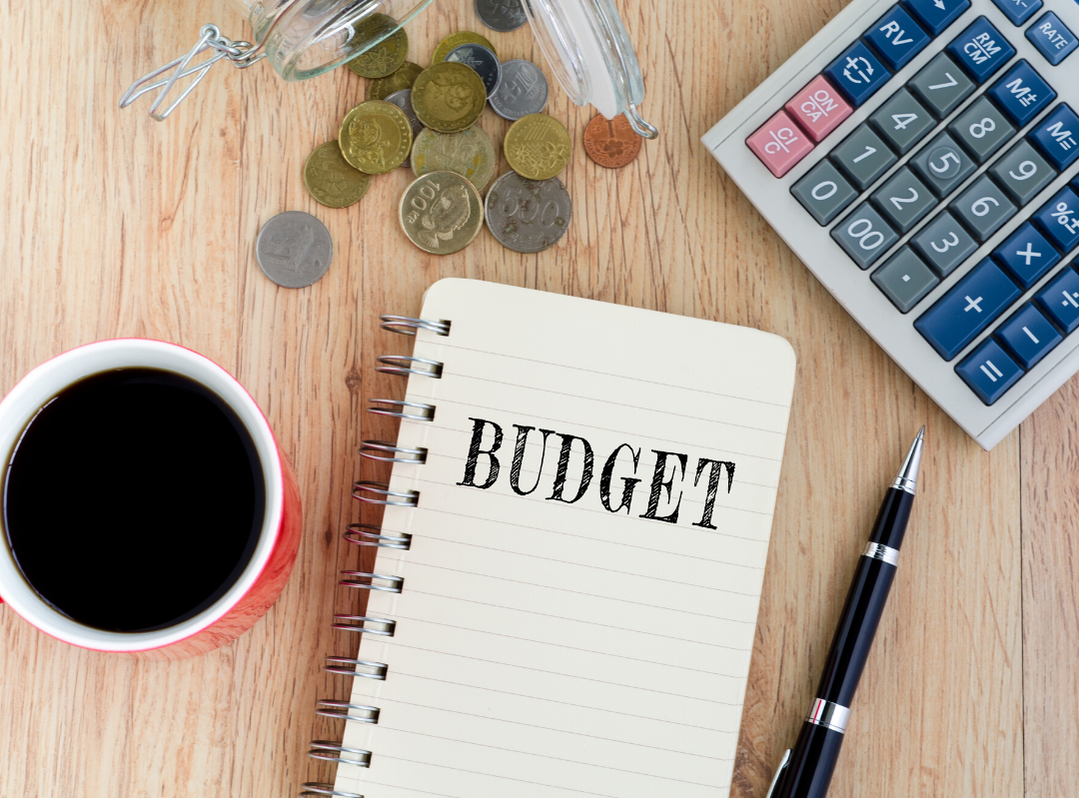|
For years I resisted savings because I felt guilty. Who am I to have abundance when there is so much poverty in the world? How can I develop assets when others have none? My heart for others made me averse to savings.
And so even though I had made a half million dollars in my working lifetime, I was still “bleeding” my money away: with out-of-control spending, the debt game, and no plan. It took developing a giving practice and also being close to poverty as a single mom to help me feel deserving of savings. Being close to poverty was a big wake-up call for me. Saving meant the difference between paying for food out of pocket and foods stamps. Saving meant choices about what kind of work I did. Saving meant security. Out of this experience I began to realize that I can give AND save. Giving helps me feel I am making a difference, and contributing to my community and my world. And Saving helps me feel secure. Once you are motivated to save, there are some basic things to focus on that involve creating security, and then building a legacy. First focus on your 4 Walls, or the basics of your household. Next, focus on Debt Elimination, so debt is not eating up your wealth. Then save an Emergency Fund of 3-6 Months of Expenses in Savings for both Business and Household, so you are secure for any storm(we saw the importance of this with the COVID-19 slowdown!) After that focus on purchasing a Home because owning a home statistically boosts your wealth. And finally focus on Retirement Savings, so you have choices for your future and can build a legacy for your family. So what are you waiting for? Start piling up cash! It is possible, even in an economic slowdown. Yes downturns happen. We’ve seen this with the Coronovirus. But you will get through this. Just as I got through being a single mom. No season lasts forever. And hopefully this will be the time you say "never again" to being in debt with no savings. For now, keep your attitude positive and keep looking for the silver lining. Stay in touch with those who cheer you on and want you to succeed. And just start saving. THE SAVINGS STEPS: 1. STABILIZE YOUR HOUSEHOLD If you are low-income, or in crisis, I recommend you start with the 4 Walls. Start with taking care of your castle first. Then you can start giving and saving. The 4 Walls are: food, shelter, transportation and utilities. Place all debt payments on hold if you need to as well. Talk to your landlord/mortgage company if you need to defer payments. Most reasonable people will work with you. Go to the food bank if needed. See if you can carpool or reduce your transportation costs. Talk to your utility company so you can keep the lights & water on. Once your household is secure, the first saving step is to accumulate $1000. We talked about this in the “Making Margin” chapter. This beginning emergency fund will help you deal with small emergencies and keep them from destroying you. Sell stuff online, take on a side hustle, cut out all unnecessary bills, etc. Review “Making Margin” if you are not sure how to save $1000. 2. FULLY-FUNDED EMERGENCY FUND The next step is to accumulate 3-6 months of expenses in savings. This bigger cushion will be the biggest gift you can give yourself. Believe me! Once I had this fund, as a single mom, I relaxed in a place I didn’t even know I was tense! I finally felt peace of mind. My clients report that they have fewer “emergencies” once they have built the emergency fund. Rather than being a negative attractor of danger, the fund seems to repel problems. And when problems arise, they can be handled with a lot less drama. When we save, we create security. Statistically, most people will have a negative financial event(divorce, death in the family, economic downturn, loss of work, illness, etc.) at least once every 10 years. In the past, I thought if I only “thought positive” enough, I would not have any emergencies. I actually thought an emergency fund would create problems for me! While I do believe positive thought in general is very important, this reliance only on positive thinking was a little naïve. Have 3-6 months of expenses in the bank~average household has $10,000 *Ask yourself, “What would it take for me to live for three to six months if I lost my income?” Your answer to that question is how much you should save. Use this money for emergencies only: incidents that would have a major impact on you and your family: unexpected household repairs, car dying & needing to be replaced, medical bills, etc. Keep these savings in a money market account. Remember, this stash of money is not an investment; it is insurance you’re paying to yourself, a buffer between you and life. *This savings is essential before you start investing in assets such as real estate, or investing in the stock market, because it is liquid cash. Investments are often not quickly liquidated. *$10,000 in the bank is an average household emergency fund. Some people want a little more, a little less. If you have a very secure job and your spouse is working, you can lean toward 3 months of expenses. If you are single or do not have a secure job, lean toward the 6 months rule. How much do you need each month to cover your expenses? Multiply that by 3 or 6 to get your “Fully-Funded Emergency Fund” number: Suze Orman recommends people have 18 months of expenses in savings. If you want to save that much for your security, go for it! I personally found that saving 6 months worth, and then going on to save for a home and start investing gave me more momentum. Since then we have gone back and “beefed up” the emergency fund to be a little larger than it was before.
1 Comment
"Failure means a stripping away of the inessential." ~J.K. Rowling
My whole life, I was set up for success. I was the "good kid" while my brother was the wild one, always doing what would make my parents happy. An oldest child of a family who valued education, I went right to college after high school. I rebelled a bit in my 20s by pursuing the arts, music & dance, without much financial success. But I returned to the people pleasing of my childhood by marrying a wealthy man and having children by the end of the decade. I built a successful small business in the healing arts & coaching in my 30s, and maintained a 5 bedroom house on 8 acres. It seemed we had it all. Then failure came along and changed my life. The underpinnings of my marriage began to unravel....my business was mired in debt....our remote rural neighborhood couldn't support my business....and then I began the arduous, slow process of losing everything I had. With the help of my prosperity coach Toni Stone, I got the courage to let go of what was not working. I lost the marriage, and became a single mom. I lost many friends & clients when I moved from a rural neighborhood to a progressive town. Although I had always made good money, due to my debt load, and out of control spending, I could not afford to buy a home for myself and my children. And then my income itself began to disappear, and I faced real poverty as a working single mom. But becoming poor was one of the best things that could have happened to me. I began to look in the mirror and see what was really going on. I discovered my people pleasing was actually a fault. When I took a Debtors Anonymous course, the common theme in myself that I discovered was "lying". I was "lying" in order to be loved. I took on debt, and spent more than I had, to please others, and appear wealthier than I actually was. A lot of my lifestyle was based on trying to make up for a deep insecurity. I began to really grieve for the loss of the marriage, and to grieve for many pains that I had experienced in my life. Instead of masking my feelings, I began to speak them, and let people know when they hurt me. I woke up to how I was medicating my grief with purchases, and I stopped the out-of-control spending. When I did the math, I saw I had wasted about $75,000 in "people-pleasing"! What I found so personal and shameful is actually a cultural problem. Most Americans try to “keep up with the Joneses”. And since 75% of Americans have consumer debt, that means the Joneses are in debt! And we are all comparing ourselves to each other! We look at each other's social media feeds to see how great other people are doing, and how poor we are doing. And it's an empty shell game! Who was I really impressing with my large lifestyle? I realized that for years buying the newer car, the bigger house, the prettier clothes, etc. never brought me happiness. The folks I was trying to impress never stuck around. And my true friends are with me no matter how much money I have. That was a real shocker. J.K. Rowling, who wrote the Harry Potter books, said of becoming a poor unemployed single mother: "Failure gave me an inner security that I had never attained by passing examinations. Failure taught me things about myself that I could have learned no other way...I also found out that I had friends whose value was truly above the price of rubies." And so rock bottom became the solid foundation on which I rebuilt my life." And so did I. I began to rebuild my life. I no longer cared what other people thought. My own financial well-being was more important to me than what I looked like. I cut my budget drastically, rented out a room, and hustled in my business. I stopped going out. I stopped buying extravagant gifts for others. I paid off $20,000 in debt in one year, and saved an extra $20,000 the next year. I joined forces with my boyfriend who lived next door, and eventually became my husband. Together we upped our net worth by $200,000 in 5 years. So if you are facing debt, low income, unpaid bills, low-to-no savings, or financial failure of any kind, congratulations! It may be painful, but failure is nothing to be afraid of. Trying to pretend everything is fine, and continuing to drive yourself into debt, now that is a real danger. Failure can be a blessing. It just might lead you to a new beginning. A PLAN TO ELIMINATE DEBT Dumping debt is an important step for building wealth. Once you are out of debt, you have real money, and that money can grow into a sizeable nest egg. My favorite get-out-of-debt system is the Dave Ramsey method:
Dave Ramsey is one of my mentors, and I hold his coaching certification. He admits he did not invent the “baby steps” above, they are classic personal finance wisdom from the last 50 years. However, he is famous for packaging and sharing them in such a way that has helped millions of people build wealth. What I love about this method is its step-by-step nature. For years I tried to do everything all at once: pay off debt, save for retirement, fund my small business, put money in savings, etc. And I was getting NOWHERE. Saving $1000, paying off my debt and then saving the emergency fund was an easier path for me. In addition, the debt snowball method was more effective for me than paying off higher interest rate credit cards. It helped me feel excited and motivated! Why eliminate debt? *Debt reduces cash flow. When you have debt payments, they eat up your take home pay, which affects your ability to save & build wealth, and also have a good lifestyle. If you have a small business, debt payments eat up your ability to pay your employees, cover operating expenses, and save for wealth-building. During economic downturns(Coronovirus, anyone?) debt marches along, becoming a crushing burden. *Debt reduces wealth. When you have debt, it subtracts that amount from your net worth. For example, you can have $50,000 in your Roth IRA, but if you have $50,000 in debt, you actually have a ZERO net worth. Wealth is important for your retirement, and it also protects you from risk. Real assets bring stability during downturns. Debt doesn’t. *Debt increases risk. When you are in debt, you are at greater risk of losing your home, and other assets, in the case of an emergency, such as a health challenge where you can’t work, or an economic downturn in which you lose your clientele. We saw many people who had too much debt on their homes lose them in 2008. 10 million of them! And we know large emergencies happen for most of us every 10 years. It’s not a question of if, it’s a question of when. *Debt masks profit. When you have a small business, debt makes it hard to tell what your actual profit margin is. Say you put a piece of equipment on the credit card at $2000, and pay $100 a month on the bill. You might bring in $100 more a month based on that equipment. But when you deduct the debt payment from the income, your profit is actually zero. The Debt Snowball METHOD: Pay off all non-mortgage debt using the Debt Snowball method. The “highest interest rate first” method IS mathematically correct, but it often doesn’t work because people lose momentum. The debt snowball method gets you fired up!! And it works to get the job done! Plus, most people pay off their debt within 2 years of doing the snowball intensively, so the amount of interest paid is not crucial. List your debts, excluding the house, in order. The smallest balance should be your number one priority. Pay the minimums on every debt but the smallest~pay as much extra on that as you can to pay it off quickly! Then attack the next one on the list. When you start knocking off the easier debts, you will see results, have more money to throw on the next largest debt, and you will stay motivated to dump your debt. As a single mom I started budgeting for the first time in my life. I started seeing my longtime habits of overspending everywhere in my life. In my business. In my household. And that overspending meant I was always in debt.
I didn’t have any margin. I was always chasing my tail. “I owe, I owe, so off to work I go”. I kept out-earning my debt, but it was a constant struggle to keep up with the bills. Hustle, hustle, but nothing to show for it. With my new habits I began to make margin, and then my extra cash started to pile up. I started to get somewhere. It was like my financial engine had been going uphill, working so hard, and now I could coast downhill…things became so much easier. What is making margin? “Do what you can, with what you have, where you are now.” ~Theodore Roosevelt Making margin is the process of increasing the amount of money between what you bring in and what you spend. Basically, it’s creating extra cash to put on your goals. I think of margin as a comforting “cushion”. To always have extra cash is very stabilizing, and increases a sense of security. We use most of our margin to save for retirement. But you might use your margin for travel, saving to buy a home, or paying off debt. Remember your Big Why? That’s where your margin can go. You can use your margin to: *pay off debt *save your emergency fund *pay for a vacation *fund some fun lifestyle *save for retirement *pay for household improvements *pay for out of pocket medical costs *pay for anything you consider “extra” So how do you make margin when your income is down? For those who are in economic hardship, the thought of trying to save money is hard, but not impossible. REMEMBER I raised my net worth by $40,000 as a single mom!! Making margin does take focus, and dedication. You are building your “margin muscle”. And the following steps can help you. Act Your Wage This was the most important step for me as a working single mother AND as someone knee-deep in debt. Since I have been a professional I had consistently made good money, but always outspent my salary. I had to let go of “keeping up with the Joneses” or trying to please others. I cut my lifestyle drastically so that I could live within my means. Acting your wage means not pretending to be wealthy, when you are actually in debt or have minimal savings. It means you need to stop spending above your income. Stop the bleeding! As a single mom I was willing to not look good for a while, in order to get my financial house in order. I rented out a room, stopped ordering takeout, looked for sales, and started using coupons. I said, “no” to my kids a lot, and made them earn their own spending money. Anyone can do this. I got food stamps and state sponsored healthcare. What can you cut out of your budget to free up cash for your goals? Remember this is a temporary sacrifice, for a lifetime of financial security. Be selectively frugal. You don’t have to cut out everything. Cut the items that are not important to you, and spend on what you love! My husband and I chose to buy a home in a lower-end neighborhood in a very inflated real estate market. We have no mortgage. This “cheapness” enables us to keep our children in a good school district without overspending on housing. It also allows us to invest 30-50% of our income for retirement! It is a trade-off that we love. My parents built a significant nest egg over 50 years. One of their secrets is they were selectively frugal in their lifestyle. They chose to be cheap in their choices of cars(always used and 10 years old), clothing(often shopping at Goodwill and other discount stores), and vacations(often taking us camping or to low-cost locations). This meant they had margin to be able to splurge on the things that were important to them: education(they funded both high school and college for myself and my brother), organic food(my mom has always been health-conscious!), and an upscale home.
Of course, I still get a latte at a business meeting or when I’m out with friends! Selective frugality is my jam. Make More Money The second thing I recommend is to be willing to do whatever it takes to generate the cash flow needed to meet your goals. Unfortunately for single parents, many have a victim or entitlement mentality which makes hard work, well, hard. I recommend dropping the “poor me” attitude, and just getting down to work. Can you take on a delivery job? Work at a grocery store? There are jobs available if you are willing to hustle. As a single mom I took on a side job at a housewares store, made calls to get extra music gigs, and networked to keep my coaching business strong. I sold stuff around the house. I applied for grants for my business. If I could do it, you can do it. Also there is no shame in looking for free money, discounts, and grants. There are many free resources out there, from free food at the food bank to business grants. Many during COVID-19 have accessed government aid. Stop the whining! Your work ethic and willingness to do whatever it takes are an essential part of your success. Even if you deliver pizzas, you can make an extra $1500 a month! Having more cash to dump debt or build savings helps keep the ball rolling! Excerpted from Chapter 5 of my new book~"Budgeting & Getting Clear"
"The budget is your friend. The budget is your friend. The budget is your friend. This is what I say to clients who are getting control of their money. So many people seem to think the budget is a horrible thing. They huff and sigh whenever we do budgets in class, and moan and groan when I bring up the subject in coaching sessions. Dave Ramsey, one of my money mentors, describes 2 financial personality types: The Free Spirit, and The Nerd. For the nerd, a budget is automatically fun. For the free spirit, it is often torture. I have been a free spirit for most of my life. Until recently for me a budget meant: strictness, living on bread and water, denying all pleasure. Just. No. Fun. Growing up, my parents were strict budgeters, and while they did spend money on themselves for fun, that was done quietly, without a lot of fanfare. Because I didn't see them doing a lot of giving or fun with their money, I interpreted that as suffering. I vowed that I would have fun with money as an adult. I would always say "yes"! And I did! I said "yes" a lot! I have always used my money to bring pleasure to myself and others, and as a result have been able to do incredibly generous giving and build a business doing work I love. Unfortunately, I often didn't know where to stop, and often had my lifestyle expand beyond my wage! I didn't know how to say "no", either to my wants, or to the wants of others. And so my budget often showed expenses higher than income. I was continually playing catch up with myself, which was incredibly stressful. Now I'm all about balance. The balance between "yes" and "no". The balance between wants and needs. Through regular budgeting, I am now debt free, with an extra cushion in savings. I have the balance that my budget brings me. I feel an incredible peace of mind, as I know my needs are amply provided for, and my savings for my wants are growing steadily. My hope is that your budget can be an empowering "balancing" tool for you too! Money loves to be paid attention to. It tends to grow in the presence of attention. When we do not pay attention to money, it disappears. How can you pay more attention to your money? With a budget. Contrary to popular belief, a budget is not a set of handcuffs. The budget is your friend! It helps you choose where your dollars go~to giving, saving, lifestyle & fun. Are you consciously choosing where your dollars go or are you frittering them away unconsciously? It’s your choice." |
Details
Kathy KaliCoach. Teacher. Author. Speaker. Archives
March 2024
Categories |




 RSS Feed
RSS Feed